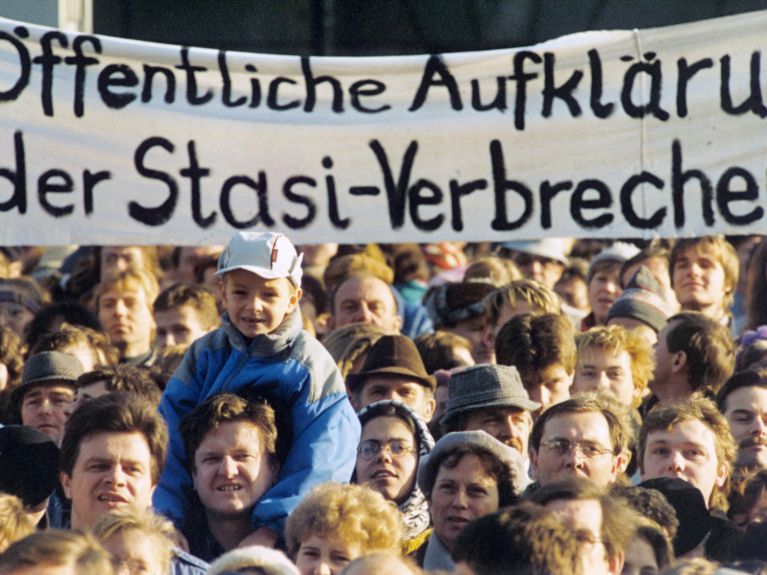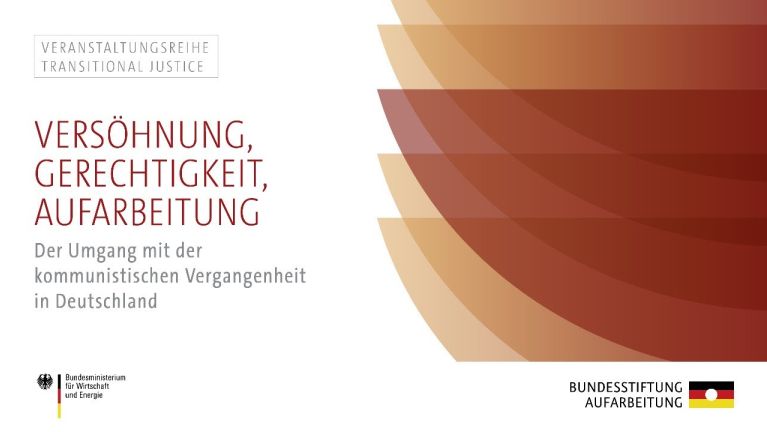Bringing the past to life
The Federal Foundation for the Study of the Communist Dictatorship in Eastern Germany remembers the GDR and looks, also from an international perspective, at the present and the future.

The GDR is history. But what can we still learn from it? A great deal, judging by the work done by the Federal Foundation for the Study of the Communist Dictatorship in Eastern Germany. On the one hand, the Federal Foundation explores the causes, history and consequences of the dictatorship in the Soviet Occupation Zone and in the GDR that emerged from it and was ruled by the Socialist United Party of Germany (SED). However, the Federal Foundation is also accompanying the process that has seen the reunited Germany grow together again, for example with its federal programme “Young People Remember”. In it, young people engage with, among other things, the often serious consequences that the work of the former State Security Service (Stasi) continues to have to this day.
Dieses YouTube-Video kann in einem neuen Tab abgespielt werden
YouTube öffnenThird party content
We use YouTube to embed content that may collect data about your activity. Please review the details and accept the service to see this content.
Open consent formFurthermore, the Federal Foundation is part of a wide-ranging international network. “The need, specifically today, to better understand this part of our history was very clear in several discussions in Berlin”, reports for example the Bulgarian filmmaker Diana Ivanova, talking about her participation in the exchange programme “Memory Work”. She investigated the traumatic consequences that the work of the secret services had in communist Bulgaria and in the GDR.
We still have a great deal to learn from one another and a lot of research ahead of us.
Pheaktra Song, director of the archive at the Tuol Sleng Genocide Museum in Cambodia’s capital Phnom Penh, also profited from the “Memory Work” programme. From October to December 2019 he worked at the Memorial and Education Centre Andreasstraße in Erfurt, where he learnt how it studies the content and methods of the SED dictatorship. His conclusion reveals the value of memory work: “We still have a great deal to learn from one another and a lot of research ahead of us into communist regimes such as in the GDR and Cambodia. However, the borders of the past, like the Berlin Wall, have disappeared.”
You would like to receive regular information about Germany? Subscribe here:



